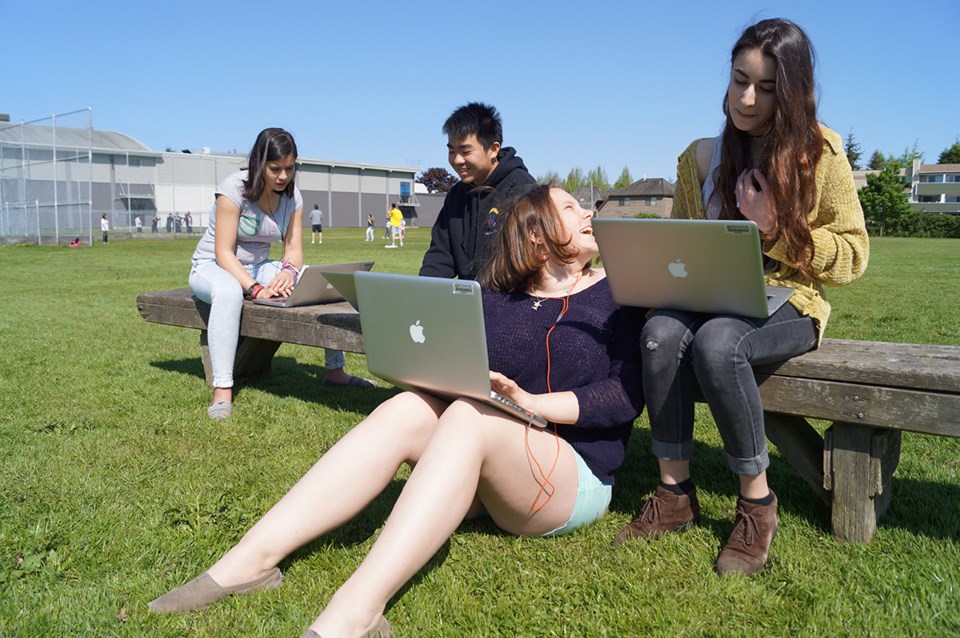A new personalized learning program fit for the 21st century just completed its first year at Palmer secondary school and the Richmond School Board expects more than twice as many students come September.
The SKY No Limits program at the Richmond Virtual School is a product of the information age children are being born into, said head teacher Gary Chan.
“It’s not your basic worksheet and test course; it’s much more personalized. Why teach things in a factory education model when you can personalize things?” asked Chan.
The reason, according to teacher Shaun Fraser is that kids have a lot more going on after class hours. Not only are they participating in the usual clubs, sports and social activities, they also have information at their fingertips at all times.
“These kids have all these things that they’re doing and for them to bring it into the classroom is valuable,” said Fraser, sharing an example about one student who was doing yeoman’s work studying music history outside of school. He said that student now earns course credits for the work being done outside of school.
“We bring their 3-9 lives into their 9-3 lives,” posited Chan.
“It’s for the kid who’s bored sitting in rows in a classroom. They want more out of their education and they think they have some interest that isn’t being explored by sitting in a regular classroom,” said Chan.
There are nine Grade 11 students in the program this year. Every other day they are in “virtual school,” whereby students have flexible starts to the day and work on independent projects, unique to their own interests.
One of those students is Kaelan Baker.
“I love doing projects, that’s where I strive. Regular classes have so many tests and it kind of weighs me down; it’s not something I’m very passionate about. So doing projects helps a lot with getting my point across and showing my teachers what I know,” she said.
Classmates Hannah Goertz, Edmond Wu and Tal Mader joined Baker outside, in the field, with their laptops to speak to the Richmond News. There, they rifled off emails, worked on papers and surfed the Internet through a weak WiFi signal under the sun.
“It’s a new way to learn and so far it’s been working out really nicely,” said Goertz.
The students take half of their courses in regular classes (Day 1) and the rest at the virtual school (Day 2). But they must be at school every day, although they do have flexible mornings on the second day.
“This is a class. We’re actually doing a lot of talking. When you walk in it may seem we’re being super antisocial and only on our computers but every once in a while we gather and have good group conversations,” explained Mader.
Wu said one of the challenges is going to two schools at one time (the students are not necessarily from Palmer).
The virtual students take English 11, one science course and an “independent directed studies” class that is their “passion project.” They also have a one or two-week work internship for credit.
Even the teaching models are different. Fraser said he feels more like a mentor because the students are more independent.
“It’s a different feeling for sure. So I feel my role as a teacher is more (about) connecting them with content as opposed to instructing.”
Chan said having the students work on their computers at home and in school is expected.
As for distractions, Chan and Fraser say they monitor Internet use and also have students keep a “tech journal” of their school and leisure online activity.
The 2015 program is expected to more than double by next year as it’s seeking a Grade 11 cohort of 25.
Chan noted the students must apply and be highly motivated to learn independently.



